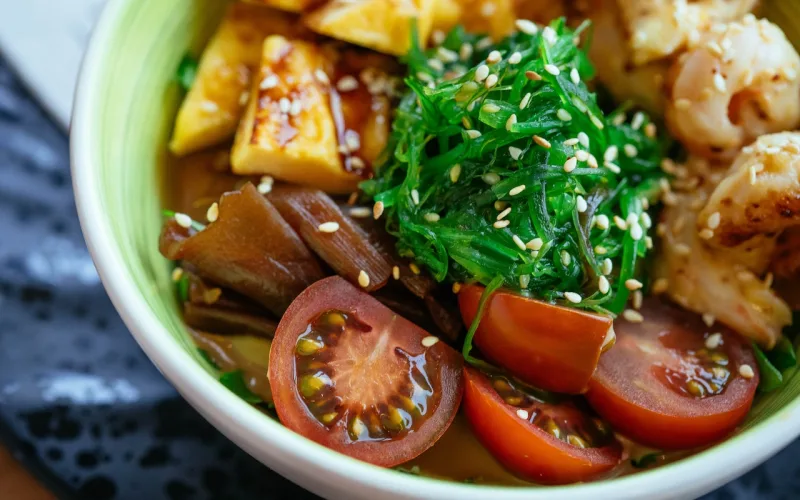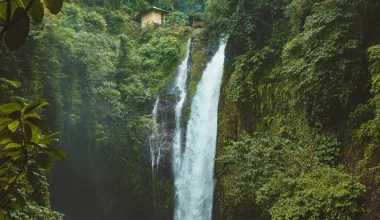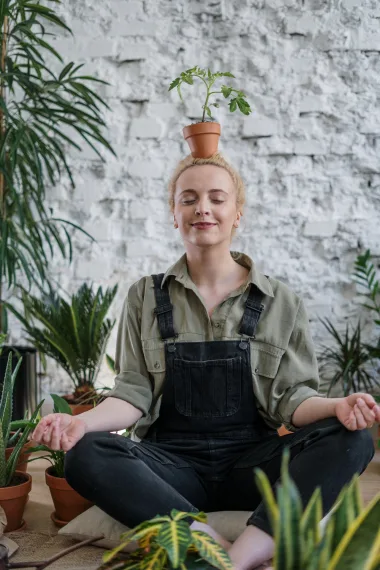Last Updated on June 6, 2023 by Ecologica Life
Table of Contents
Oh, you’re vegan? So, you eat rabbit food? Do you get enough protein? Are you one of those vegans who makes their own cashew nut butter? Don’t you miss meat? Maybe.
Veganism and vegetarianism are probably two of the least popular words in the English language, but why?
Since the early 2000’s, the plant-based diets have multiplied in popularity and accessibility, with Sentient Media stating that sales of plant-based foods grew three times faster than overall food sales in 2021.
Consumers who love the taste and texture of meat are gradually realising the truth behind the flesh they choose to eat, while vegan products are becoming increasingly similar to meat itself.
While everyone’s reasons for choosing a vegetarian or plant-based diet will vary, each choice will have a positive impact on the animals themselves, and our planet. Let’s have a look at some of the reasons why people choose a plant-based lifestyle, and why you might want to consider it too.
Veganism for Moral Reasons
We don’t doubt that most readers would say that they “love” animals. You may have a fluffy friend at home that you love and care for. The question we’d like you to ask yourself is: what is the difference between the value of your puppy’s life, and the value of a cow’s life? Both animals are living, cognitive creatures.
The practice of eating meat is so normalised that many of us wouldn’t stop to make the comparison. But let’s stop for a moment and think about the lives of these farm animals. Not only are they inhumanely slaughtered before their time has come, but they also live painful and traumatic lives, living in cramped spaces and terrible conditions, many from the moment they are born until the moment they die. They are born simply to reproduce and then to be slaughtered.
Sadly, female farm animals will spend most of their lives unnaturally pregnant so that they can continue to produce milk for us humans to drink. The following YouTube video will give you a brief explanation of the dairy industry:
The other day at work I overheard a colleague; “I get it if you’re vegan, fine if you don’t want to eat meat. But stop trying to make fake meat and just eat vegetables”. No. And the reason why we’ll say no is that for some of us, the reason we don’t eat meat isn’t that we don’t like it. We probably grew up eating it, maybe twice a day.
We like the taste, even the texture. Our first few meals as vegetarians may have felt insubstantial, unsatisfying, and although now, four years into vegetarianism, the thought of a steak doesn’t really appeal to me, I can assure you it wasn’t always that way.
What doesn’t help is that the way in which meat is packaged and presented to us in the supermarket in no way depicts its original form, making it easy for the consumer to become, or remain, blind to what that lump of flesh really is. Although we know what animal the meat comes from, we turn a blind eye.
American author Colleen Patrick-Goudreau, in her book The Joyful Vegan, calls this state ‘wistful blindness’. She suggests that because of the normalisation of eating meat, the way it’s sold to us through advertising, education and cultural norms, we tend not to question the habit.
However, the vegan always has to justify his or her decision not to cause harm. This is because people do not see it as causing harm. We often hear, “it’s dead anyway”, “I won’t make a difference”.
It is how we spend our money that makes the difference. When you buy a product, you are subtly involved in the demand for that product, effectively investing in that industry. Consumers today are becoming conscious of what they buy and the ethical implications. You can see this in the impact on the fashion industry, for example.
Modern factory farming is undoubtedly cruel and has no regard for animal welfare. Many of us are at least somewhat aware of this and, vegan or not, we don’t agree with this level of suffering.
I am of course talking about chickens living in overcrowded pens (typically 25 confined to 1 square metre), turkeys being force-fed throughout their lives until they are unable to walk, and of course, cows being constantly (artificially) impregnated and suffering every time they are separated from their calves. These are just a few examples of the cruelty of the modern day factory farming industry.
Eating vegan meals, whether consistently or intermittently, helps people feel guilt-free about what they consume. We can rest assured that our plate of food is not the result of pain, suffering, and trauma, but a selection of naturally grown goodness from the multitude of amazingly nutritious foods our earth has to offer. That said, Oreos, Percy Pigs, and Jammie Dodgers are all vegan, and it’s safe to say they’re not nature’s finest produce!
Is Veganism Healthy?
We’ve all heard about cholesterol and know that we shouldn’t consume too much red meat, but there are so many unheard-of benefits to a vegan diet.
Unfortunately, many people jump to the conclusion that vegans are skinny, unhealthy-looking people with no muscle mass and grey skin. Absolutely not! And to give you an idea of what vegans look like, Natalie Portman, Ariana Grande, Lewis Hamilton, and Beyoncé are just a few examples of celebrities we’re all familiar with who opt for the vegan diet.
The health benefits of veganism, when done correctly, are copious, including promoting weight loss, managing type 2 diabetes, reducing the risk of bowel cancer, and reducing the risk of heart disease.
Add to this to the fact that farm animals are legally consuming plastic in their animal feed, and veganism may be the way to go.
However, you need to make sure that you don’t fall into the trap of eating too many refined grains and processed foods, and that you get the following into your diet: protein, vitamin B12, essential fatty acids, and iron.
Since protein is a macronutrient that may concern us considerably, the following is a list of vegan foods that are high in protein: seitan, tofu, tempeh, edamame, lentils, beans, nutritional yeast, green peas, quinoa, soy milk, oats, chia seeds, nuts, and nut butters.
While vegan food may sound confusing and foreign to some, we like to see it as a new adventure! Tempeh? What’s that? Not a clue! But here’s a recipe to introduce you to it that you’ll enjoy, tried and tasted by us here at Ecologica.life. Alternatively, treat yourself to a Wagas & try the tempeh ribs! You won’t regret it.
If you are considering going vegan, you may want to consider taking some supplements for vitamins it might be hard to get enough of. It is recommended when following a vegetarian or vegan diet to consume foods fortified with B12 or a daily supplement.
Vitamin B12 is a key nutrient that supports overall health including healthy red blood cell formation and maintaining a normal nervous system. Vitamin B12 also helps to reduce tiredness and fatigue.
A few vegan foods that are naturally high in B12 are: nutritional yeast, marmite & yeast spreads, fortified soy & almond milk, plant-based meats, fortified cereals, and tempeh. If you would like to read more about vitamin B12, the Vegan Society has an interesting and informative article.
Before making any changes to your diet, it is always a good idea to do your research to make a good diet plan, or even talk to a GP or dietician if you have any concerns. If you have any medical conditions or allergies, or if you are pregnant, you may need to take further precautions.
Veganism and the Environment
If you’re reading this article, you’re probably interested in making a difference for our planet, and one way to do that is through opting for a vegan diet. Remember, veganism doesn’t have to be an all-or-nothing lifestyle, and every small positive decision helps. Studies show that vegan diets tend to have a much lower carbon and water footprint than those of meat and fish eaters.
Carbon Footprint
Going vegan may reduce your carbon footprint by up to 73%, researchers at Oxford University found. Think of the amount of food that must be fed to cows, pigs, sheep, and even chickens. This is before the animal is even taken to the slaughterhouse, is killed, processed, transported to supermarkets, and stored in refrigerators. Each part of this process uses energy and contributes to your carbon footprint.
Water Footprint
A meat-based diet is said to consume twice the amount of water as a plant-based diet. Not only do the animals you eat drink a lot of water, but the crops they eat also need watering to grow. According to Clean Water Action, a single pound of beef takes an average of 1,800 gallons of water to produce, while one pound of tofu uses 302 gallons of water. Furthermore, cow’s milk requires the most water to produce, meanwhile oat milk uses around a quarter of that.
Conclusion
We know and understand that the transition from meat-eater to vegan can be daunting and difficult, and we want to reiterate that veganism and vegetarianism don’t have to be an all-or-nothing venture and that things aren’t always black and white.
Making a few small changes might be where you want to start, whether that be eating meat twice a week, rather than four times, or switching to plant based milk for your coffee. Why not start incorporating almonds into your diet to promote weight loss and lower cholesterol.
If you do continue eating meat, perhaps you can choose the organic or free-range option. This will ensure that you’re contributing to a slightly more ethical farming process where the animals have had the space to lead a healthy life and is also less harmful for our planet as organic farms have lower emissions and use less energy.
As you start to make a gradual transformation, you may come across more content that convinces you that a vegan lifestyle is a compassionate lifestyle, making your decisions easy, rather than forcing yourself into customs you might think are right, but don’t quite believe yet.
So why not try something new? Why don’t you look up some vegan recipes to find dishes that tickle your fancy? Don’t rush the process, try to make small habit changes every day, and be kind to yourself.









1 comment
Great article Georgia, some interesting points raised!